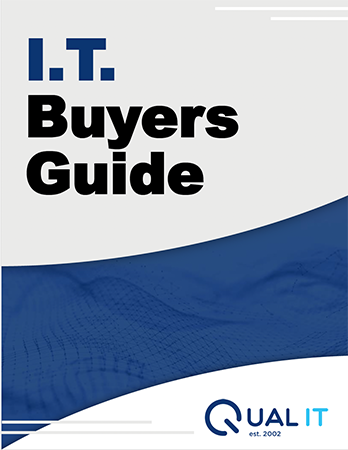Is Your Dental Practice Training AI How To Hack You?
Why Salt Lake City Dental Clinics Must Be Cautious About AI Use In The Office
AI tools like ChatGPT, Microsoft Copilot, and Google Gemini are making their way into every corner of the workplace—including dental practices right here in Salt Lake City. Whether you're summarizing meeting notes, writing social media content, or using AI to troubleshoot a system error, it's easy to forget that you're dealing with incredibly powerful technology.
And while these tools are often huge time-savers, they can also quietly open the door to serious cybersecurity risks—especially for healthcare providers bound by HIPAA regulations.

If your Salt Lake City dental office is using AI tools without a clear policy in place, you could be unintentionally exposing patient data, financial records, or even EHR login credentials. Here’s what you need to know.
Here’s The Problem
The problem isn’t the AI itself. It’s how your team uses it. When a dental assistant or office manager pastes sensitive data—like a patient’s medical history or treatment cost estimate—into a public AI tool, that information may be stored, reused, or even used to train the next generation of language models.
Samsung learned this the hard way when engineers inadvertently leaked internal source code to ChatGPT. The company responded by banning public AI tools outright.
Now imagine a hygienist in your practice asking ChatGPT to help summarize a patient follow-up note and pasting in sensitive information. Without realizing it, they've just created a compliance nightmare.
In the world of dental IT, this type of data exposure is a HIPAA violation waiting to happen.
A New Threat: Prompt Injection
Beyond accidental exposure, there’s a sneakier tactic on the rise: prompt injection. Hackers embed malicious commands inside PDFs, emails, or even YouTube video captions. When AI tools are used to process this data, they can be manipulated into revealing sensitive information or executing harmful actions.
This is especially dangerous in cloud-based practice management systems like Dentrix Ascend or Open Dental Cloud, where access to patient data is interconnected. One wrong interaction with an AI tool could potentially expose login credentials or treatment plans.
AI is fast. But it’s not foolproof.
Why Dental Practices Are Especially Vulnerable
Dental offices in Salt Lake City are known for fast-paced environments and multitasking staff. That often means AI tools are adopted informally—without vetting or guidance.
Staff might assume AI tools are like smarter versions of Google. But when they paste patient insurance info, intraoral image notes, or charting summaries into these tools, they don’t realize that data may be stored offsite or viewed by third parties.
Most practices don’t have written AI policies, internal training, or security monitoring around AI use. That leaves the door wide open for compliance issues and cyber threats.
What Salt Lake City Dental Offices Can Do Right Now
You don’t need to block all AI use—you just need to manage it wisely. Here’s how:
- Create an AI usage policy. Identify which tools are approved, what data is off-limits, and who staff should go to with questions.
- Train your team. Give your staff real examples of how AI misuse can lead to HIPAA violations. Awareness is the first defense.
- Use secure, compliant platforms. Encourage tools like Microsoft Copilot or platforms integrated into your EHR with enterprise-grade controls.
- Monitor AI usage. Keep track of which AI tools are being used and consider blocking public AI sites from company networks.
Your dental office already has strong protocols for infection control. You need the same discipline for AI.
Stay Secure and Smart With Qual IT
AI can be a massive help when used responsibly. But one careless copy-paste could turn into a costly data breach, a HIPAA violation, or a patient trust crisis.
At Qual IT, we specialize in managed IT services for dental practices in Salt Lake City. We help offices like yours create secure AI usage policies, implement compliance-friendly tools, and lock down networks to keep patient data safe.



